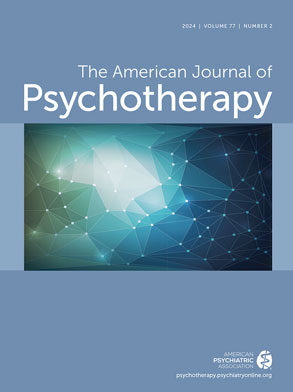The American Journal of Psychotherapy has settled into its new home at the American Psychiatric Association (APA), having resumed publication in early 2018. At APA, the journal occupies a unique niche, a psychotherapy-focused publication located within the largest and most influential psychiatric organization in North America. APA’s acquisition of this journal highlights the centrality of psychotherapy to psychiatrists and the significance of psychosocial interventions more broadly.
Psychotherapy remains a key part of our therapeutic armamentarium. Recognized as a first-line treatment for many common mental health conditions, psychotherapy is often preferred by patients to other options, such as medications. High-quality articles in the American Journal of Psychotherapy help ensure that readers have access to cutting-edge information about psychotherapy to enhance, inform, and improve their research and clinical endeavors. The journal facilitates its readership’s engagement in the field with the goal of expanding knowledge about psychotherapy efficacy, process, education, and practice.
I am honored and humbled to serve as the new Editor for the American Journal of Psychotherapy. I consider myself to be a pluralist, and as such I hope to be a good fit for this “big tent” publication. As a clinician-researcher, I believe that we learn from both data-driven findings and the wisdom of skilled practitioners. Thus, the journal’s article types include Clinical Case Discussions, Psychotherapy Tools, original research articles, and meta-analyses. My own work focuses on better understanding the role of interpersonal psychotherapy (IPT) in the management of mood disorders, but I know that one treatment does not fit all. The journal explicitly welcomes articles on all types of psychotherapies, including IPT, psychodynamic, cognitive-behavioral therapy, dialectical behavior therapy, existential, emotion-focused, problem-solving, mentalizing, mindfulness-based, and client-centered approaches. Although I am a psychiatrist, I believe that interdisciplinary approaches are critical to the advancement of psychotherapy; therefore, I view this as a journal belonging to all mental health professionals.
After less than a year at APA, the
American Journal of Psychotherapy is off to a good start. We are back! You can look forward to enjoying informative articles on psychotherapy such as those of the current issue, which features trauma-focused psychodynamic psychotherapy of a patient with posttraumatic stress disorder (
1), the utility of a multifaceted formulation approach (
2), Y model psychotherapy training (
3), regulation-focused psychotherapy for children (
4), and approaches to supervision for clinicians providing supportive therapy (
5).
Relaunching a journal is a team effort. We would not be able to attract, review, produce, and publish without the hard work of many individuals, especially the superb editorial staff at American Psychiatric Association Publishing, including Michael Roy, Demarie Jackson, Heidi Koch-Bubel, and Rachel Schaperow. I also wish to thank the many anonymous reviewers who, despite little glory, volunteer their time and intellect for the peer-review process. Finally, I am grateful to the authors who entrust their excellent work to the American Journal of Psychotherapy, allowing all of us to benefit from their wisdom and whose scholarship advances the field of psychotherapy.

